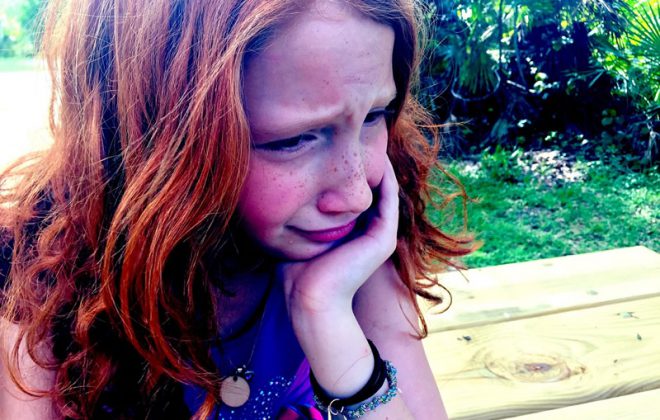Ep9 – Temperament
I just assumed that my child would be like myself or my wife, or somewhere in between. It took me a long time to realise and accept that she was in fact her own little person with her own little idiosyncracies. Some of these I found, at first, a little hard to handle, but I think I am getting better at accepting her for whom she is. She also can really surprise me with some of her positive attributes. I can’t wait to see what kind of person she is going to grow into! I just hope I can give her the type of support she needs.
Key points
- Coping with stress varies from child to child.
- Difficult does not mean bad, and easy does not mean good.
- We are the sum of our experiences.
When a baby is born, he or she is dealt a genetic hand of cards. Sometimes these genes, with regards to all aspects of a child’s personality, are like Mum, Dad, both, or neither. Most acorns fall close to the tree, but not all. The random nature of this is what makes us all different. Babies are born with a bunch of stuff.
This bunch of stuff, in terms of our psychological makeup is called our temperament. Different babies, even from the same parents, can have strikingly different temperaments. Ask parents who have lots of kids how different they can be from each other, even from the word go.
Psychologists have analysed the different types of temperaments that children can possess, and have basically described them in terms of how well a child can cope with an ‘emotionally challenging situation’.
What is an emotionally challenging situation?
This can vary a lot. Sometimes it is whether you are hungry, have a poo in your nappy or are frightened by old Aunt Enid with a wart on her nose sticking her face into your pram. In older children, an emotionally challenging situation might involve getting picked on by someone in the playground, having trouble doing your maths homework or getting your favourite doll’s arm ripped off by your little brother.
Different types of temperament
The ability to cope with stress-inducing situations varies from child to child, just like other aspects and abilities such as co-ordination skills or language skills, or for that matter, how big their nose is. So, your child could be born with a good, bad or somewhere in between natural ability to cope with a stressful situation. These variations have been described as:
- ‘easy’ temperament — copes with stress easily, is easy to settle, doesn’t cry much, and generally easy to parent (we all want one of these!)
- ‘slow to settle’ temperament –—gets anxious when exposed to stress
- ‘difficult’ temperament — doesn’t cope well with stress, is quick to lose the plot, is hard to settle down, and tantrums a lot (hmm, a challenge!)
It is essential to note here that if a child has a difficult temperament it’s not due to your bad parenting (or that glass of wine you had early in the pregnancy, or your inability to breastfeed. I suppose you could try and blame your partner…). Conversely, a child with an easy temperament does not reflect a Supermum.
Baby braggers (and you do exist), pull your heads in!
Firstly, you make parents with more difficult babies feel unduly inadequate, and secondly, you never know how your next child is going to turn out—Karma could bite you in the bum here.
Also, importantly, a difficult temperament in a child is not a recipe for disaster. These kids may require more patience and a thoughtful and paced approach to parenting, but can certainly still end up to be wonderful human beings with whom we can have a loving and close relationship.
Recognise the characteristics
Interestingly, the characteristics that can make a child ‘difficult’ can also be the flipside of other characteristics that lead them to achieving success in the big wide world (if appropriately nurtured and guided).
Difficult does not mean bad, and easy does not mean good. A stubborn child may have good persistence, and a distractible child maybe artistic and expressive.
| Easy temperament characteristic | Difficult temperament characteristic |
| Generally happy | Generally serious |
| Goes with the flow | Inflexible |
| Laid-back | In-your-face |
| Patient | Impulsive |
| Flexible | Stubborn |
| Friendly | Shy |
| Calm body movements | Ants-in-pants |
| Persistent | Gives up easily |
| Cool McCool | Hot tempered |
| Expressive | Reserved |
| Calm | Stress-head |
| ‘Even’ mood | Up and down mood |
| Thick skinned | Over-sensitive |
| Good concentration | Distractible |
| Regular body clock | Body clock ‘all over the shop’ |
| Tolerates sensations well | Freaked out by sensations (light, sounds, tastes, textures) |
Of course most children will have a few of these difficult characteristics, just some more than others. It’s a bit of a spectrum, really.
So, it’s important to realise that a baby can be born with a difficult temperament. If this describes your child, you will need to be a little careful that you are not expecting too much of little bubs. Babies and children vary, and our approach to them needs to vary accordingly. Basically, we need to find out who our child is— what they are like.
As they grow, you can revisit this, almost like an ongoing ‘audit.’ What are their strengths and weaknesses? Have a good look. Unfortunately, in recent times we have raised expectations for our kids to unrealistic levels. Normal or average is often not good enough these days. Some people now seem to consider having an average child akin to having one with a disability!
Average is also not a defining characteristic of a child, although it may be their score at a particular skill. Normal varies. Come to think of it, do we even know what normal is? Not only should we perform ongoing audits of our child, we should accept who they are, rather than judging them against our expectations. Don’t ever forget to notice the good bits of your child.
We are the sum of our experiences
If we can understand our child, we can better support and teach them. This we do by providing them with experiences. Biology is not destiny. In other words, our children are a product of:
genes + experience
So, apart from some initial genetic wiring, we are the sum of our experiences, and most of these experiences will happen with other people. These experiences need to be the right kind of experiences, and this is what we will be discussing in future blog posts.
Oh no! Pressure! It’s all up to us parents to get this experience stuff right! Relax, children are often amazingly resilient. You don’t have to be a perfect parent, just a ‘good enough’ one. And nearly all parents are— and always have been— good enough.
Listen to your kids carefully and watch them closely: find out who they are and what they’re like; nurture their skills and strengths; identify and then support them in their weaknesses; and, finally, watch them bloom. All – good – fun.





